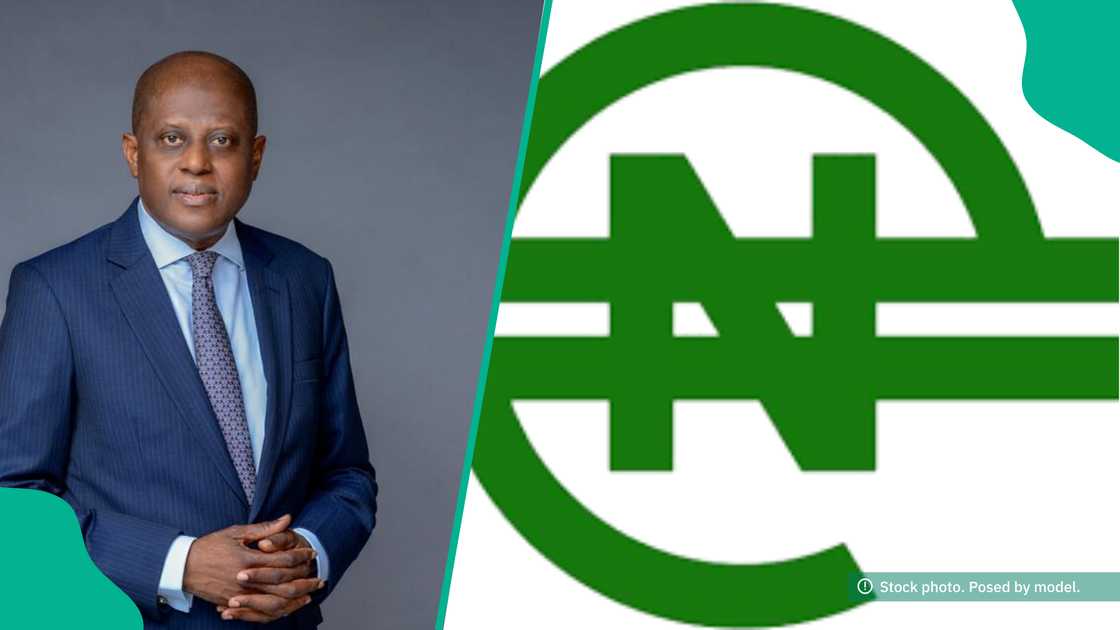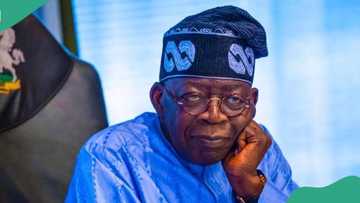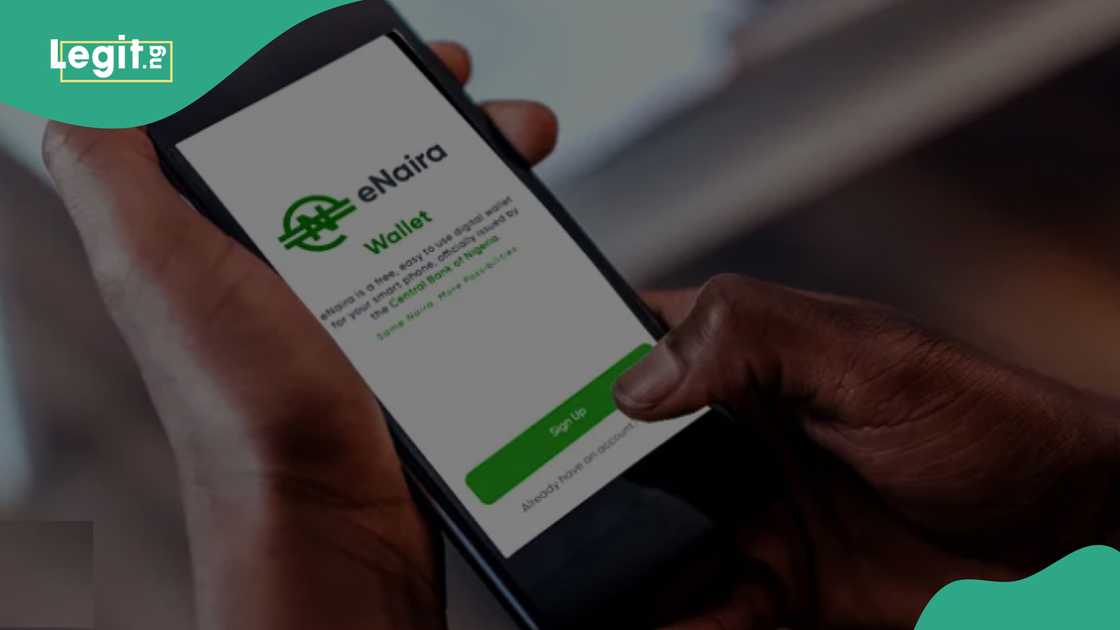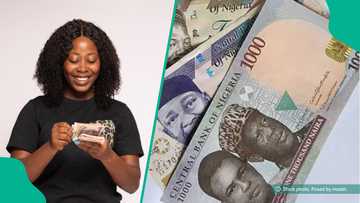“It Shouldn’t Require a BVN”: Experts React as CBN Speaks on Plans for eNaira 2.0
- The CBN digital currency, eNaira, has received praise from fintech experts for its potential to drive financial inclusion and economic progress, despite a steep decline in usage
- With plans for eNaira 2.0, the CBN aims to address earlier issues and expand the platform's functionality, including offline use and integration into government services
- However, trust and access remain significant challenges, particularly in rural areas where many individuals lack the necessary tools to fully engage with the digital currency
Legit.ng journalist Zainab Iwayemi has 5-year-experience covering the Economy, Technology, and Capital Market.
Three years after its first introduction, the Central Bank of Nigeria (CBN) has been commended by fintech leaders and experts for its efforts to revive its digital currency, the eNaira.

Source: UGC
Expert reactions to the plan indicate that, with the right implementation, the revised eNaira might be a powerful instrument for financial inclusion and economic progress.
To succeed, the eNaira must become decentralised and internationally accessible, according to Modupe Diyaolu, a financial expert and co-founder/CEO of meCash.
The eNaira has the potential to help digitise public services and improve faster, safer payment methods, according to economist Ikemesit Effiong.
Despite the steep decline in eNaira usage and confidence, the CBN remains optimistic about the currency's future, citing its role in modernising Nigeria's financial system and promoting equality, especially among marginalised groups.
When the eNaira was first launched in October 2021, it was praised as a bold step in Africa's digital finance landscape. Nigeria was the first country on the continent to introduce a central bank digital currency (CBDC), joining a small group of countries around the world, which also includes Jamaica and The Bahamas.
Less than 1% of the N4.55 trillion in money in circulation is still represented by the eNaira, despite its value rising from N0.94 billion in December 2021 to N18.31 billion by October 2024. The number of users of the digital currency has rapidly decreased; according to official data, 98% of wallets are currently dormant.
With the eNaira app having been downloaded about 840,000 times and more than 270,000 wallets—252,000 consumer and 17,000 merchant wallets—being in active use, the currency first showed a high level of adoption. Both the volume and value of transactions increased to above 200,000 and N4 billion, respectively.
Updates for the app itself haven't been released in about a year. Unresolved transactional issues and subpar customer service have been reported by frustrated customers, including Baffa Halliru.
eNaira 2.0
The planned relaunch, dubbed eNaira 2.0, intends to fix earlier problems and expand the platform's functionality. Offline functionality, conditional payment programmable money, and a version intended for wholesale use by deposit money banks are also envisaged.
By allowing Ministries, Departments, and Agencies (MDAs) to pay beneficiaries and vendors using eNaira wallets, the CBN intends to work closely with the federal and state governments to encourage adoption.
The apex bank is also pushing for a paradigm that integrates eNaira payments into existing financial practices, including tax collection and government transfers.
In an interview with LEADERSHIP Weekend, Diyaolu said that the eNaira must become decentralised and globally accessible in order to succeed.
“It shouldn’t require a BVN or a Nigerian bank account. A Chinese or European buyer should be able to pay a Nigerian seller directly using eNaira without needing to go through cumbersome processes. Decentralisation will drive adoption,” she said.
According to Diyaolu, small firms and retail customers are underserved by Nigeria's current financial infrastructure, which predominantly serves corporate clients and larger institutions.
“The eNaira shouldn’t be about competing with banks; it should fill the gaps they’ve left. Challenger banks and fintechs brought banking to millions without the need to visit a branch. The eNaira should build on that model to reach unbanked populations, particularly in rural areas.”
Effiong asserts that the eNaira can promote safer, faster payments and automate public services. He claims that official backing provides an additional layer of security that can reduce fraud and deter illicit use.
“Unlike cryptocurrencies that some use to evade oversight, the eNaira is issued and monitored by the government. That discourages fraud and builds confidence among cautious users,” he said.
According to Effiong, integrating the eNaira into cash-intensive sectors like public transportation could encourage broader adoption.
“Most public transport systems in Nigeria still operate with cash. Bringing them into the eNaira ecosystem would drive usage and improve transparency,” he added.
Even with these encouraging perspectives, there are still many obstacles to overcome; trust is still a big one. Government oversight is viewed with suspicion by many Nigerians, who worry that digital transactions may be used to watch or manipulate them.

Read also
Tinubu's presidency: Group fires IMF for allegedly downgrading Nigeria's economic growth projection
Although they are willing to use the eNaira, a number of teenagers who were interviewed stated that they need to feel safe and comfortable on the site initially.
According to one user, a sizeable portion of rural residents are excluded since they do not have a functional USSD code, which is essential for individuals without smartphones.

Source: UGC
“Many people don’t have smartphones, and even those who do can’t always access the internet. The USSD code hasn’t worked in months. How can you drive inclusion without the basic tools?” he queried.
Others draw negative comparisons between Nigeria's experience and nations like the Bahamas, where the introduction of a digital currency required widespread public education and a methodical deployment. The procedure was perceived as hurried in Nigeria, with minimal attempt made to describe the product or walk people through its features.
Nigeria, China sign deal to reduce dollar dependence
Legit.ng reported that the Nigeria-China Strategic Partnership has disclosed that Nigeria would soon ink a deal on Digital RMB with China to allow a direct conversion of naira to Chinese Yuan.
The digital renminbi (RMB) is a central bank digital currency issued by the Chinese apex bank, the People’s Bank of China.
The Director-General of the NCSP, Joseph Tegbe, disclosed that the deal was expected to reduce Nigeria’s dependence on the US dollar.
Source: Legit.ng





